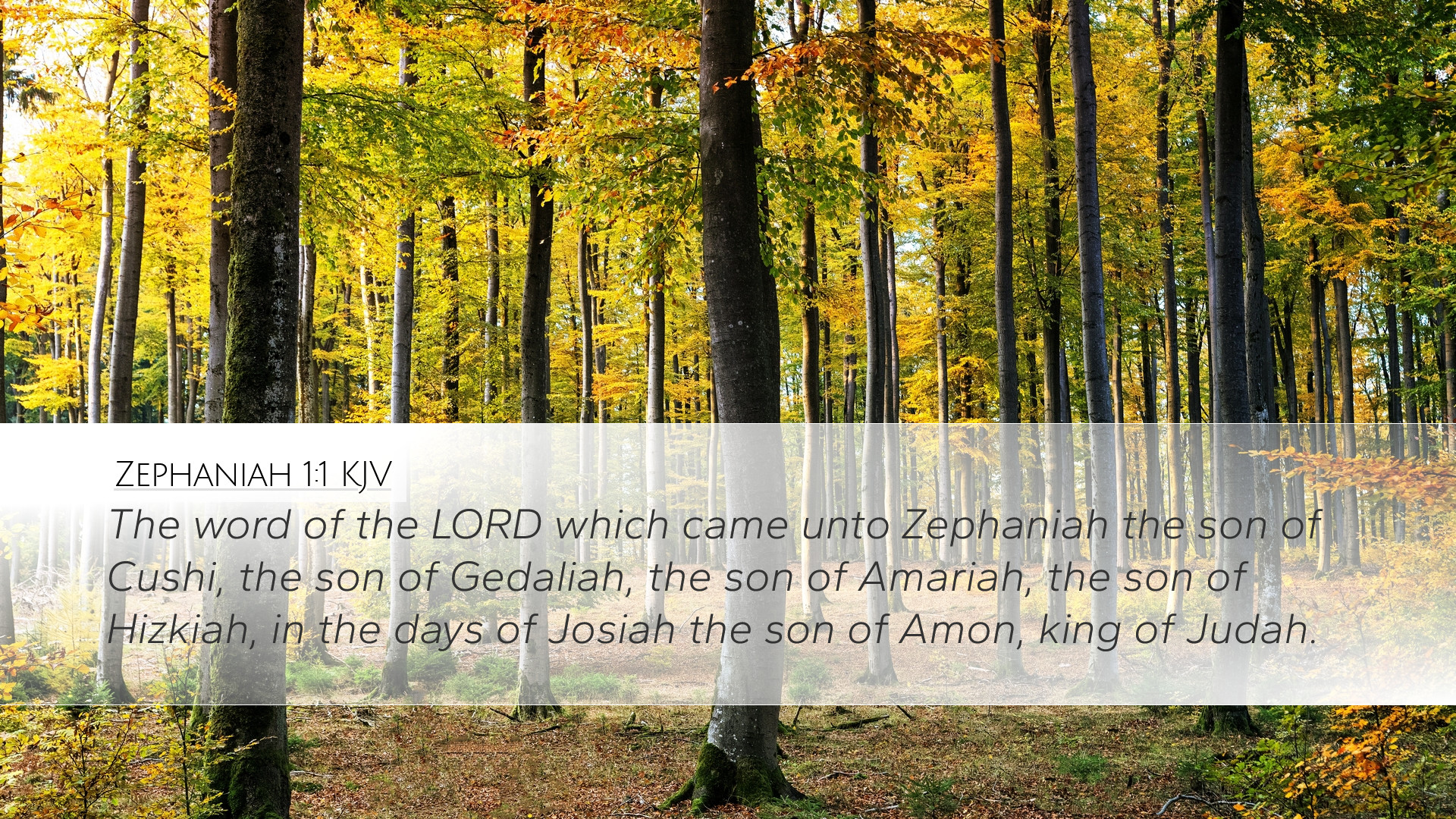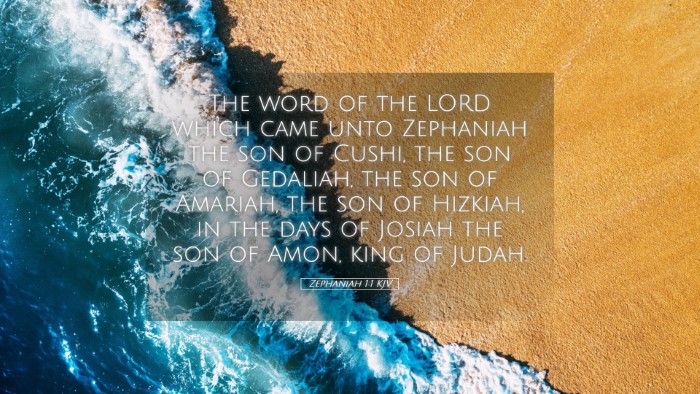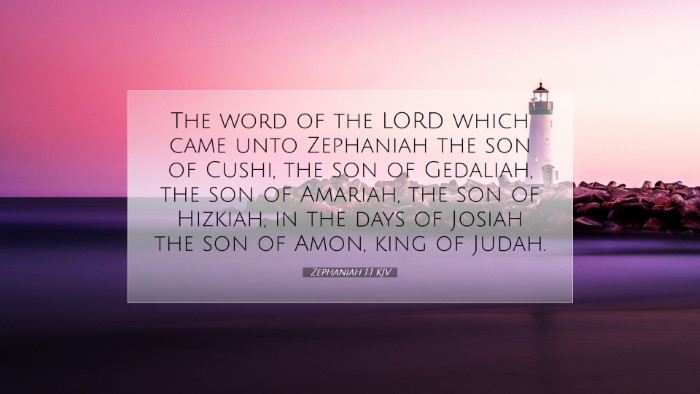Old Testament
Genesis Exodus Leviticus Numbers Deuteronomy Joshua Judges Ruth 1 Samuel 2 Samuel 1 Kings 2 Kings 1 Chronicles 2 Chronicles Ezra Nehemiah Esther Job Psalms Proverbs Ecclesiastes Song of Solomon Isaiah Jeremiah Lamentations Ezekiel Daniel Hosea Joel Amos Obadiah Jonah Micah Nahum Habakkuk Zephaniah Haggai Zechariah MalachiZephaniah 1:1
Zephaniah 1:1 KJV
The word of the LORD which came unto Zephaniah the son of Cushi, the son of Gedaliah, the son of Amariah, the son of Hizkiah, in the days of Josiah the son of Amon, king of Judah.
Zephaniah 1:1 Bible Commentary
Commentary on Zephaniah 1:1
Verse: Zephaniah 1:1 - "The word of the Lord which came unto Zephaniah the son of Cushi, the son of Gedaliah, the son of Amariah, the son of Hezekiah, in the days of Josiah the son of Amon, king of Judah."
Introduction
The opening verse of the Book of Zephaniah sets a historical and prophetic context that is essential for understanding the message it conveys. This verse introduces Zephaniah as a prophet and places him within the lineage of notable figures, establishing his authority in the prophetic tradition.
Contextual Background
Zephaniah prophesied during the reign of King Josiah of Judah, a period marked by religious reform and a return to covenant faithfulness. This was a time when Judah faced imminent judgment due to widespread idolatry and moral decay. Understanding this context is crucial for interpreting Zephaniah's message.
Analysis of Key Components
-
Divine Revelation
The phrase "The word of the Lord" emphasizes that Zephaniah’s message originates from God Himself. This is a central theme in prophetic literature, asserting that prophets are not merely speaking on their own authority but delivering divine judgment and counsel.
-
Genealogical Significance
Zephaniah is described as "the son of Cushi," which may suggest Gentile ancestry or represent a branch of the royal line. His lineage includes "Hezekiah," a notable king who brought about significant reforms, thereby aligning Zephaniah with a legacy of prophetic and royal significance.
-
Historical Context
The reference to "the days of Josiah the son of Amon, king of Judah" situates Zephaniah's prophecy within a critical moment in Judah's history. During Josiah's reign, the discovery of the Book of the Law initiated sweeping reforms and called the nation back to obedience, making Zephaniah's warnings both timely and urgent.
Theological Insights
The verse encapsulates fundamental themes in prophetic literature, including:
- Call to Repentance: Zephaniah’s role as a prophet is to call the people to repentance. The inclusion of his lineage underscores God’s fidelity to His covenant, as He raises up prophets from among His people to warn and guide them.
- Judgment and Hope: The dual themes of judgment against sin and the hope of restoration permeate the text. Zephaniah embodies both the immediate call to recognize sin and the larger story of God’s redemptive plan for His people.
- Sovereignty of God: The initiation of Zephaniah’s prophecy by the Lord underscores the sovereignty of God over nations and history. The prophetic word stands as a reminder that God is actively involved in human affairs and holds nations accountable for their actions.
Comparative Insights
In the broader context of the Minor Prophets and the works of other contemporary prophets, such as Habakkuk and Jeremiah, Zephaniah's message carries distinctive elements. While Jeremiah focuses on the consequences of Judah's disobedience, Zephaniah emphasizes impending judgment as a means to provoke a return to holiness.
Conclusion
Zephaniah 1:1 serves not only as an introduction to the prophetic book but also encapsulates themes that are rich in theological and historical significance. For pastors, students, and scholars, this verse acts as a springboard into deeper study of prophetic literature, encouraging reflection on God’s justice, the call to repentance, and the profound hope found in divine mercy. Recognizing the context and understanding the implications of God's word through Zephaniah allows for a greater appreciation of the complexities of faithfulness in a world often resistant to divine truth.


